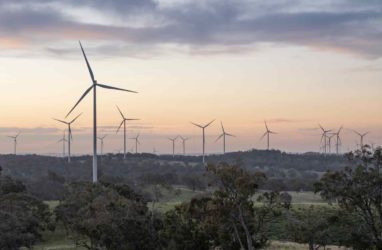Feed aggregator
EU criminalises environmental damage ‘comparable to ecocide’
Directive punishes most serious cases of environmental damage, including habitat loss and illegal logging
The European Union has become the first international body to criminalise wide-scale environmental damage “comparable to ecocide”.
Late on Thursday, lawmakers agreed an update to the bloc’s environmental crime directive punishing the most serious cases of ecosystem destruction, including habitat loss and illegal logging, with tougher penalties.
Continue reading...Nations found to ignore Indigenous peoples, local communities in biodiversity plans
School Strike 4 Climate: Australian students skip classes en masse to call for action
Hundreds of school students marched their way to Tanya Plibersek’s office with thousands protesting in Melbourne
Nirvana Talukder didn’t go to school on Friday – but she says she was thinking about her future.
The 16-year-old was among hundreds of school students who marched their way to federal environment minister Tanya Plibersek’s office in Surry Hills, Sydney, calling for action on climate change. They joined thousands of students across Australia who took Friday off as part of the School Strike 4 Climate.
Continue reading...China releases supplementary rules on CCER project development and trading
The week in wildlife – in pictures: Neil the Seal, a shy echidna and a lion in the suburbs
The best of this week’s wildlife photographs from around the world
Continue reading...Five years on, the world is failing to learn the gilets jaunes’ lesson about class and climate | Oliver Haynes
From the reaction to Ulez in London to heat pumps in Germany, eco-policies are still too often felt as sanctions on working people
It began with a petition. In May 2018, Priscillia Ludosky, a gently spoken French-Martinique small-business owner who sold natural cosmetic products, launched a call on Change.org for lower prices on petrol at the pumps. It gathered steam and she was contacted by Eric Drouet, a lorry driver. Together they organised a protest against a carbon tax on petrol that was due to be implemented the following year (notably, this was not long after Emmanuel Macron cut taxes for the ultra-rich). The call was eventually answered by hundreds of thousands of people across France, in rural areas and cities. The gilets jaunes (yellow vests) movement was born.
Its participants are now celebrating the fifth anniversary of a movement that politicised many people across France, uniting them in rage at the “president of the rich”. I remember the first protest in Troyes in the Champagne region, where I was living at the time. I was taken aback by how angry people were as they banged at the gates of the town hall in their hi-vis jackets, venting their frustration at the daily struggles of life in post-2008 France, where average disposable incomes had dropped over several years. French protests are always lively, but as the journalist John Lichfield observed, “the white-hot anger” of the gilets jaunes was “something new and different”. As it turned out, Macron was surprised too. He abandoned the tax after just over three weeks of protest, leaving the French political class in total shock at what had just happened.
Continue reading...The waste pickers of Nairobi’s Dandora dump site – in pictures
As officials prepare to gather in Nairobi, Kenya, for the third stage of talks on a UN plastic pollution treaty, new photos show the scale of the waste problem less than 8 miles from the UN Environment Programme building where the talks will take place. Nairobi’s Dandora dump site is one of the largest in Africa
Continue reading...Bezos Earth Fund donates $30 mln to forest, grassland conservation
Bottom trawling could disturb vast stocks of marine organic carbon, NZ study shows
Western Australia commits cash, incentives to attract CCUS, hydrogen, and clean energy projects
UK government weakens energy efficiency targets for farmers
Improvement targets for horticulture and poultry reduced after lobbying from National Farmers’ Union
The UK government has weakened energy efficiency targets for farmers after lobbying from the National Farmers’ Union.
The Department for Energy Security and Net Zero (DESNZ) had proposed a 40.9% energy efficiency improvement target for horticulture and a 12% target for poultry in order to cut the carbon footprint of the farming sector and reduce the reliance on fossil fuels to heat greenhouses and sheds.
Continue reading...Cop28 host UAE breaking its own ban on routine gas flaring, data shows
Exclusive: Fields run by climate summit host have burned gas near daily despite 20-year-old pledge, satellite monitoring reveals
State-run oil and gas fields in the United Arab Emirates have been flaring gas virtually daily despite having committed 20 years ago to a policy of zero routine flaring, the Guardian can reveal.
The UAE is hosting the UN Cop28 summit, which starts on 30 November, and Sultan Al Jaber, the CEO of the state oil company Adnoc, will preside over the international negotiations to urgently tackle the climate crisis.
Continue reading...NSW Planning backflips on wind energy map messaging: Everywhere is now suitable!
 The NSW Planning department has performed a remarkable backflip on the messaging from its wind farm map. Everywhere is now deemed "suitable" for wind turbines.
The NSW Planning department has performed a remarkable backflip on the messaging from its wind farm map. Everywhere is now deemed "suitable" for wind turbines.
The post NSW Planning backflips on wind energy map messaging: Everywhere is now suitable! appeared first on RenewEconomy.
Energy Insiders Podcast: State of confusion
 Confusing new wind guidelines in NSW as coal state runs short of spinning machines. Plus: Origin battle intensifies as Tesla throws down energy gauntlet.
Confusing new wind guidelines in NSW as coal state runs short of spinning machines. Plus: Origin battle intensifies as Tesla throws down energy gauntlet.
The post Energy Insiders Podcast: State of confusion appeared first on RenewEconomy.
Kwinana green hydrogen hub reaches “major milestone” at former oil refinery
 A large-scale green hydrogen production facility at bp’s former Kwinana oil refinery in WA has made key new progress, backed by $70m from federal Labor.
A large-scale green hydrogen production facility at bp’s former Kwinana oil refinery in WA has made key new progress, backed by $70m from federal Labor.
The post Kwinana green hydrogen hub reaches “major milestone” at former oil refinery appeared first on RenewEconomy.
Australian perovskite breakthrough takes the “alchemy” out of solar cell production
 Australian researchers develop a new way to make, reproduce and test new perovskite solar cells within a matter of weeks, bypassing years of human labour and error.
Australian researchers develop a new way to make, reproduce and test new perovskite solar cells within a matter of weeks, bypassing years of human labour and error.
The post Australian perovskite breakthrough takes the “alchemy” out of solar cell production appeared first on RenewEconomy.



